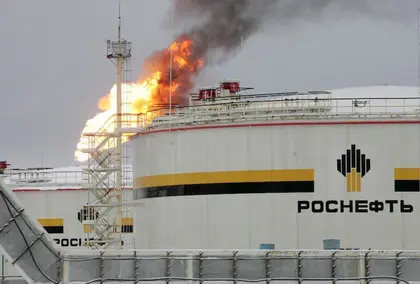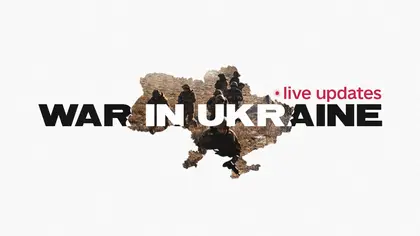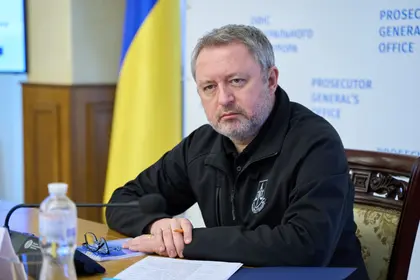Against the background of Russia’s full-scale invasion of Ukraine and the corresponding sanctions against Russia, a number of countries are beginning to face economic problems. Some are trying to solve them by secretly trading with Russia despite bans and restrictions.
Southern European countries are secretly buying Russian oil, compensating for the fall in purchases by Northern European countries.
“Supplies of Russian oil to ports in Italy and Turkey rose to multi-week highs in the seven days to August 5, offsetting a drop in supplies to customers in Northern Europe. Supplies from Russia to the Mediterranean region as a whole were the highest since mid-June,” Bloomberg reports, citing data on tanker movements.
Bloomberg notes that the growth in demand for Russian oil indicates the high risks involved in violating the sanctions that are in place against Russia.
That is why more and more conversations about the rapprochement between Turkey and Russia have appeared within the European Union, with some European politicians believing that Turkey can become a platform for trade with Russia.
To prevent an economic crisis in Turkey, President Recep Erdogan can help Russia to circumvent Western sanctions. The issue here is increasing bilateral trade and cooperation in energy, finance, and trade.
According to a report in the Financial Times on August 7, Western companies might stop cooperation with Turkey or reduce ties with it. If Turkey helps Russia to get around sanctions, it could also see restrictions placed on it, which are capable of undermining an economy already suffering from inflation.

Russia Striking Ukraine Railways to 'Paralyse' Army Cargo: Ukraine Source
However, official talks on imposing sanctions against Turkey have not been held yet in the European Union. Although European officials are closely monitoring Russian-Turkish ties, there is no consensus on imposing sanctions on Turkey. After all, there is a risk that many countries will not want to lose the lucrative Turkish market.
At the same time, a number of countries continue to trade with Russia. For example, for the first time since April, Spain bought Urals oil, although delivery was made from Kazakhstan. Greece has bought Russian oil for the first time since February, while Bulgaria and Romania increased their purchase of hydrocarbons from Russia to 255,000 barrels per day.
“The identification of some of these shipments as non-Russian, even if they are of the Russian variety sent from a Russian port, shows how difficult it will be to control the sanctions when they take effect in December,” the Bloomberg report said.
That is why there is a significant threat that, without additional secondary sanctions, Russian oil will continue to flow to Europe to circumvent the embargo in the form of petroleum from third countries.
After all, European airlines are in no hurry to get rid of Russian fuel by buying it in India. However, the sixth package of EU sanctions, adopted on June 3, prohibits the sea import of Russian oil from December 5, 2022, and the import of petroleum products from the Russian Federation from February 5, 2023.
On March 8, the UK announced an embargo, promising to ban the import of Russian oil and oil products by the end of 2022. However, in 2021, Russia’s share of total British imports of oil and petroleum products was just 8%, making the UK one of the least dependent on Russian oil in Europe. But retail chains and gas stations in the UK continue to sell Russian diesel to their customers.
“We have more than enough time for the market and our supply chains to adapt to these significant changes,” UK Economy Secretary Kwasi Kwarteng said when announcing the Russian oil embargo in March. “Companies should use this year to ensure a smooth transition so that consumers are not affected.”
In response, Greenpeace UK, with the support of other environmental and human rights organizations, demands that the government and relevant companies stop importing and using Russian oil immediately.
Britain’s largest supermarket chains, namely Sainsbury’s, Tesco, Morrisons, and Asda, which have previously publicly declared their support for Ukraine, have faced public criticism for continuing to sell Russian diesel.
“Great Britain’s retail chains want us to believe that they are ethical and support Ukraine, but if they sell Russian oil, then they are complicit in the carnage,” says Matt Mellen, editor of the environmental online magazine Ecohustler, who in June launched the “Pumping for Putin” campaign to underline the fact of purchase of Russian oil and to demand retailers halt sales of Russian fuel.
However, Sainsbury’s has confirmed that Russian diesel can still be sold at its petrol stations. Representatives refer to the government’s decision that the import of Russian oil should stop only by the end of the year. Tesco, Asda and Morrisons declined to comment. It is known, however, that they plan to gradually abandon Russian fuel by the end of 2022.
You can also highlight the text and press Ctrl + Enter






Comments (0)